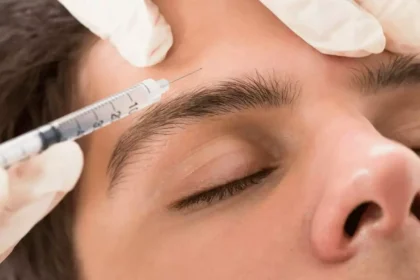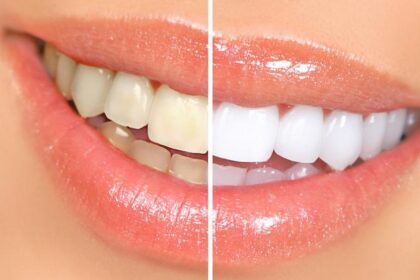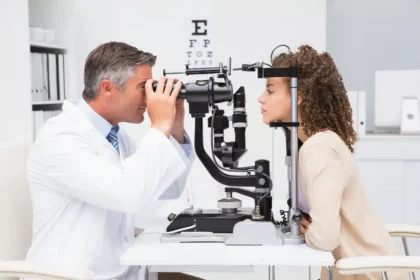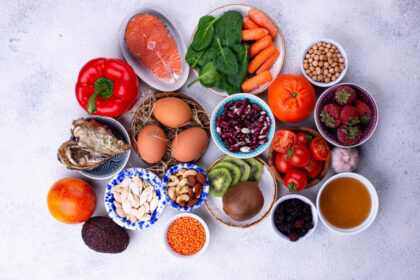Your diet has a direct impact on your oral health. The foods and drinks you consume can either nourish and protect your teeth or contribute to decay, erosion, and gum disease. In this guide, we’ll explore how diet influences dental health, which foods are beneficial, which to limit or avoid, and how to maintain a smile-friendly eating routine.
Why Is Diet Important for Dental Health?
Everything you eat and drink affects your teeth long after you finish chewing. Some foods strengthen tooth enamel, promote saliva production, and support gum health, while others feed harmful bacteria that lead to plaque buildup, acid attacks, and cavities.
Fact: Tooth decay is one of the most common preventable diseases — and your diet plays a huge role in that prevention.
What Happens in Your Mouth When You Eat?
H3: The Acid Attack Process
- When you eat sugars or refined carbs, bacteria in your mouth convert them into acids.
- These acids attack your enamel, the outer protective layer of your teeth.
- Repeated acid attacks weaken enamel, leading to cavities.
H3: Role of Saliva
- Saliva helps wash away food particles and neutralize acids.
- A dry mouth (due to certain foods, dehydration, or medications) can increase your risk of decay.
Best Foods to Eat for Healthy Teeth
H3: 1. Dairy Products
- Milk, cheese, and yogurt are rich in calcium and phosphates which strengthen enamel.
- Cheese increases saliva production and balances mouth pH.
H3: 2. Crunchy Fruits and Vegetables
- Apples, carrots, and celery act like natural toothbrushes and stimulate gums.
- Their high water content helps dilute sugars and clean teeth surfaces.
H3: 3. Leafy Greens
- Spinach, kale, and other greens are high in vitamins and minerals like calcium and folic acid, great for oral health.
H3: 4. Green and Black Tea
- Contain polyphenols that kill or suppress bacteria and reduce plaque buildup.
H3: 5. Water
- Best drink for teeth. It rinses away food particles, supports saliva production, and keeps your mouth hydrated.
Tip: Drink fluoridated water if available — it helps strengthen enamel.
Worst Foods and Drinks for Dental Health
H3: 1. Sugary Snacks and Drinks
- Candy, cookies, soda, and sports drinks are full of sugar that fuels cavity-causing bacteria.
- Sticky sweets (like toffees) cling to teeth and do more harm.
H3: 2. Acidic Foods and Beverages
- Citrus fruits, vinegar, energy drinks, and carbonated drinks can erode enamel over time.
- If consumed, rinse with water and avoid brushing for 30 minutes afterward.
H3: 3. Starchy and Refined Carbohydrates
- Chips, white bread, and pasta break down into sugar and get stuck between teeth, feeding bacteria.
H3: 4. Dried Fruits
- Raisins and dried mangoes are often marketed as healthy, but they stick to teeth and are high in natural sugars.
Smart Dietary Habits for Oral Health
| Healthy Habit | Why It Matters |
|---|---|
| Eat a balanced diet with essential nutrients | Supports enamel and gum strength |
| Drink plenty of water throughout the day | Promotes saliva and cleans teeth |
| Limit snacking between meals | Reduces the frequency of acid attacks |
| Use a straw when drinking acidic drinks | Minimizes contact with teeth |
| Chew sugar-free gum after meals | Increases saliva and helps neutralize acids |
How to Balance a Sweet Tooth with Oral Health
You don’t have to completely give up sweets. Try these safer strategies:
- Eat sweets with meals instead of as snacks (more saliva is present during meals).
- Choose dark chocolate over sticky candies.
- Rinse your mouth with water after eating sugar.
- Brush your teeth 30 minutes later to avoid brushing softened enamel.
Conclusion
Your diet is as important as brushing and flossing when it comes to maintaining good dental health. Choosing the right foods — rich in calcium, vitamins, and low in sugar — helps keep your teeth strong and your gums healthy. Avoid sugary, acidic, and sticky foods as much as possible, and remember: small dietary changes can make a big difference in your smile’s future.
Frequently Asked Questions (FAQs)
1. Can what I eat really affect my teeth that much?
Yes, your diet directly influences your risk of cavities, gum disease, and enamel erosion.
2. Are fruits bad for teeth due to their sugar content?
Fruits like apples and pears are good in moderation. However, dried fruits and citrus should be consumed with care due to high sugar and acid content.
3. How does cheese help my teeth?
Cheese is high in calcium and helps balance the mouth’s pH, reducing acid attacks.
4. What drinks should I avoid for better dental health?
Avoid or limit soda, sports drinks, energy drinks, and fruit juices due to high sugar and acid levels.
5. Are sugar-free snacks completely safe for teeth?
While better than sugary options, some sugar-free snacks contain acids or starches that can still harm teeth. Always check ingredients.
6. How can I protect my teeth if I eat acidic foods?
Rinse your mouth with water afterward and wait 30 minutes before brushing to protect enamel.
7. Is chewing gum good for teeth?
Yes, sugar-free gum stimulates saliva and helps clean the mouth after meals.
8. How much water should I drink for good oral health?
Aim for 6–8 glasses a day to stay hydrated and support natural saliva production, which defends against decay.









